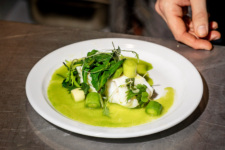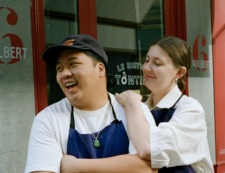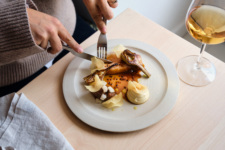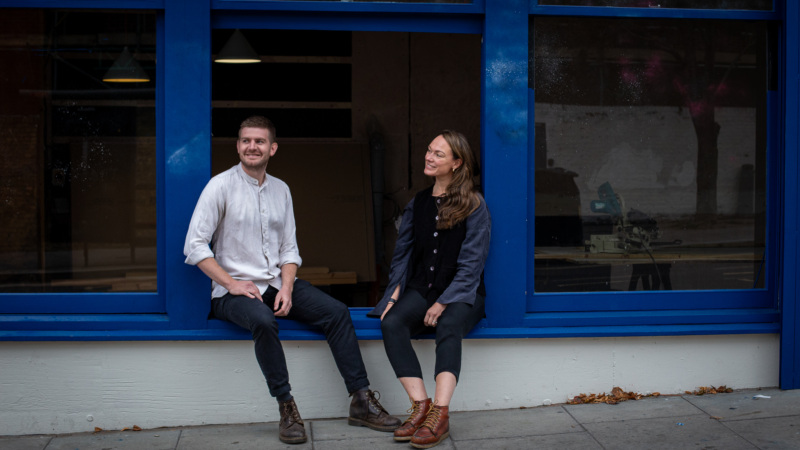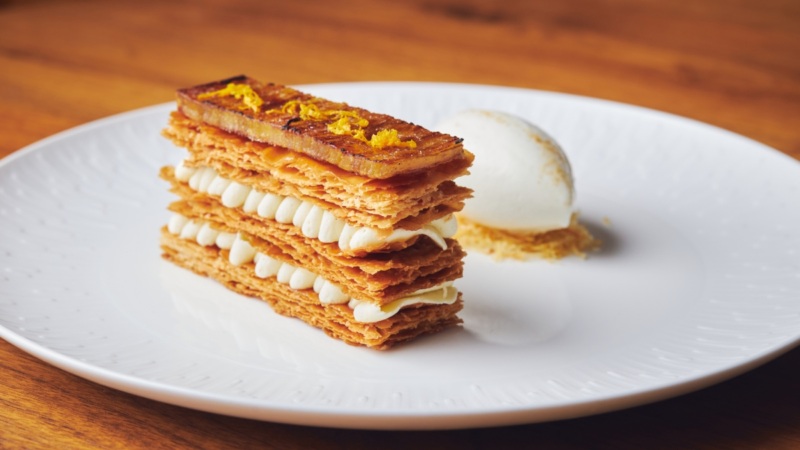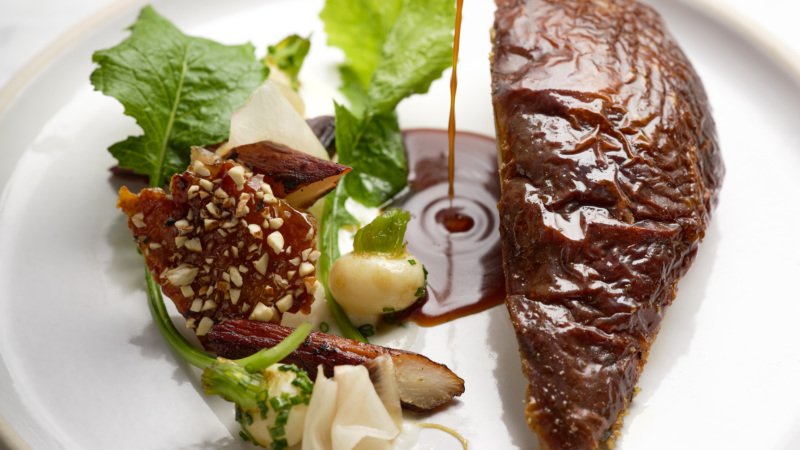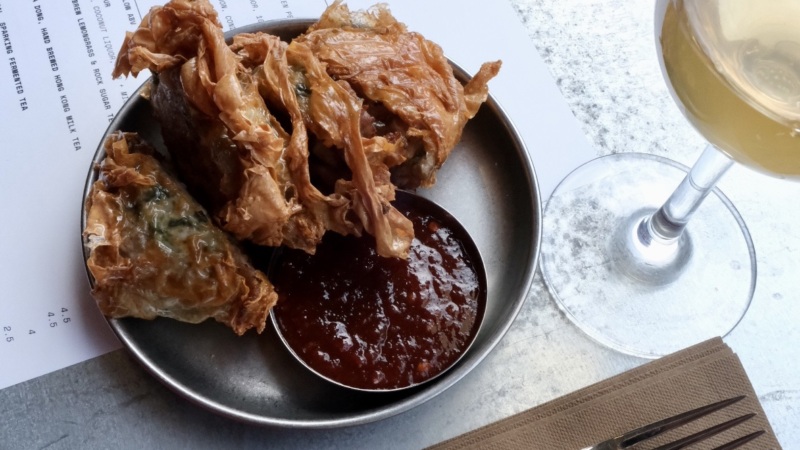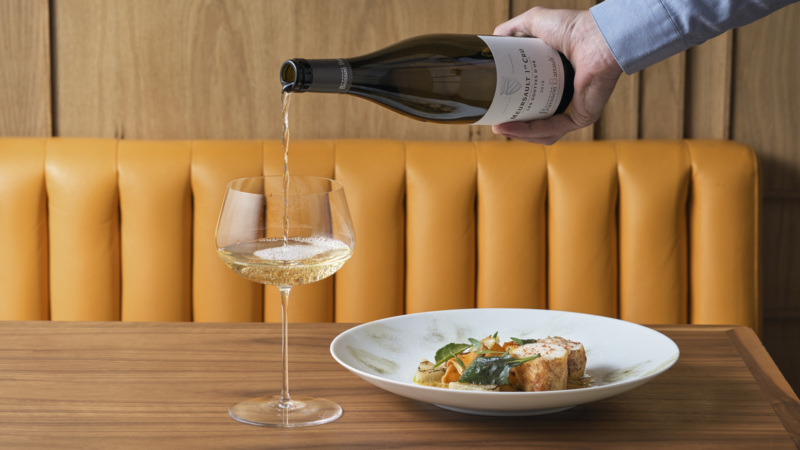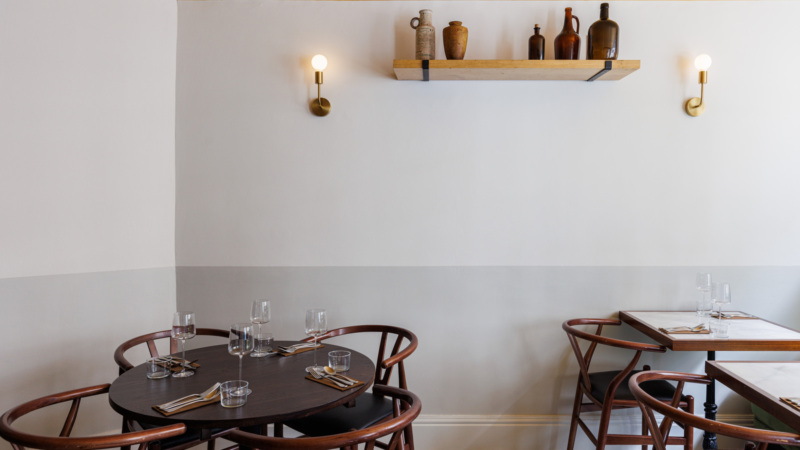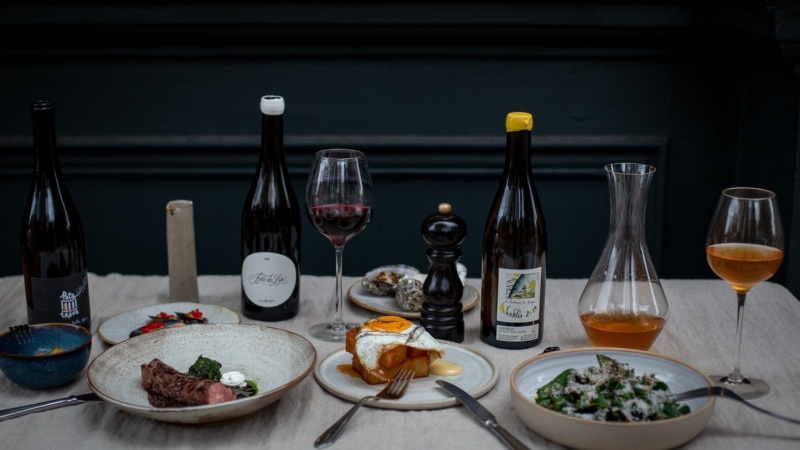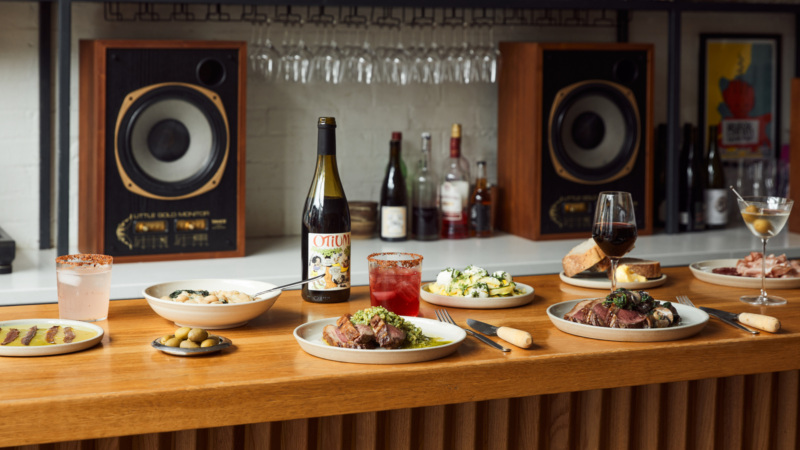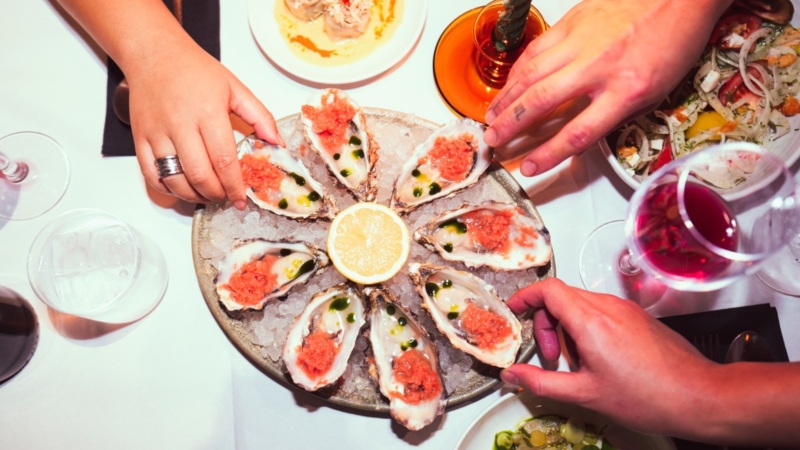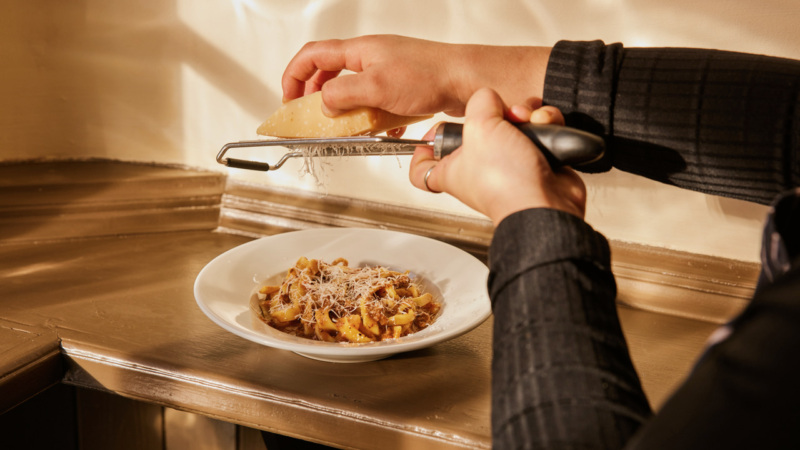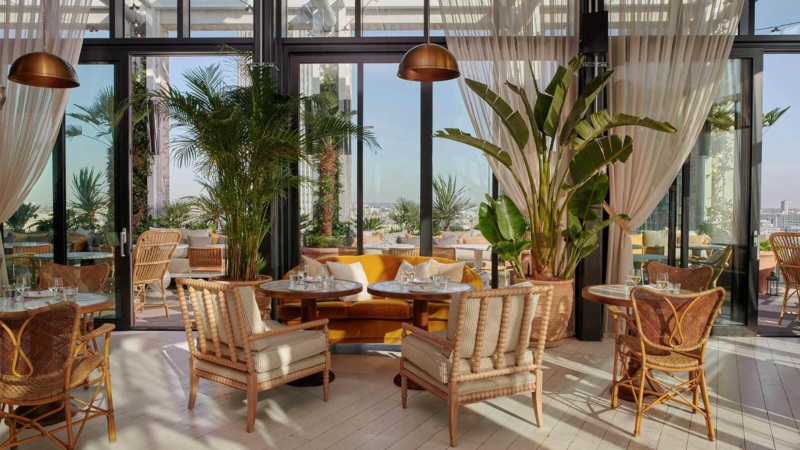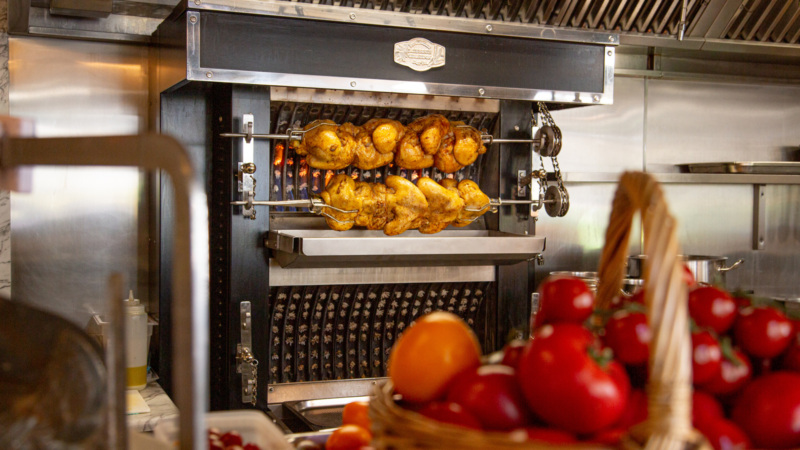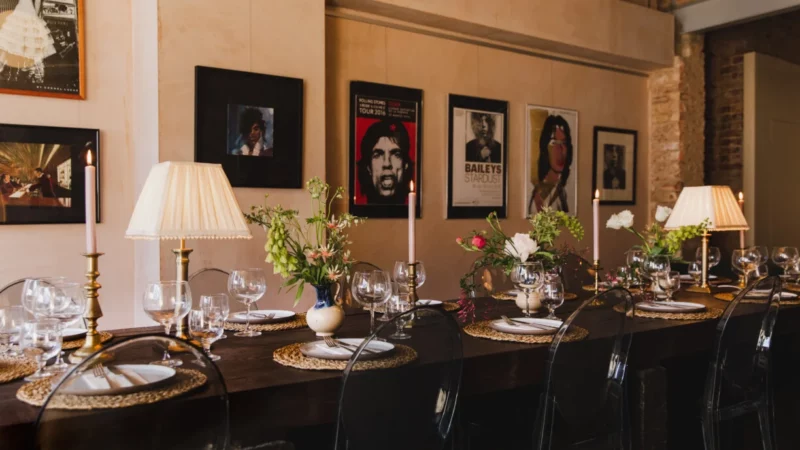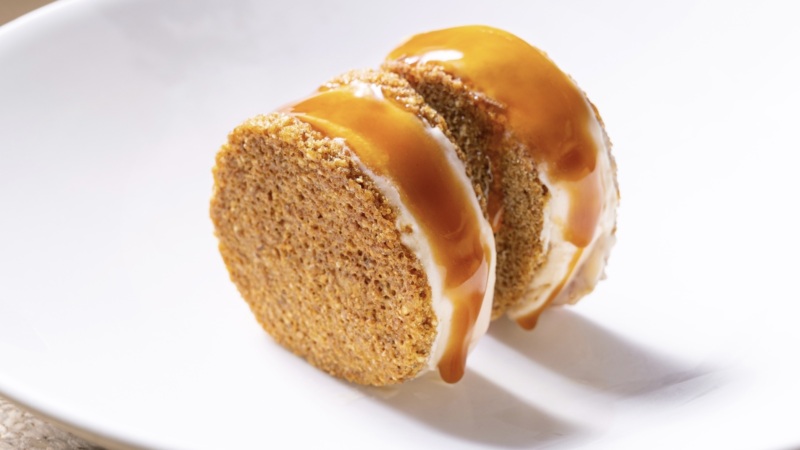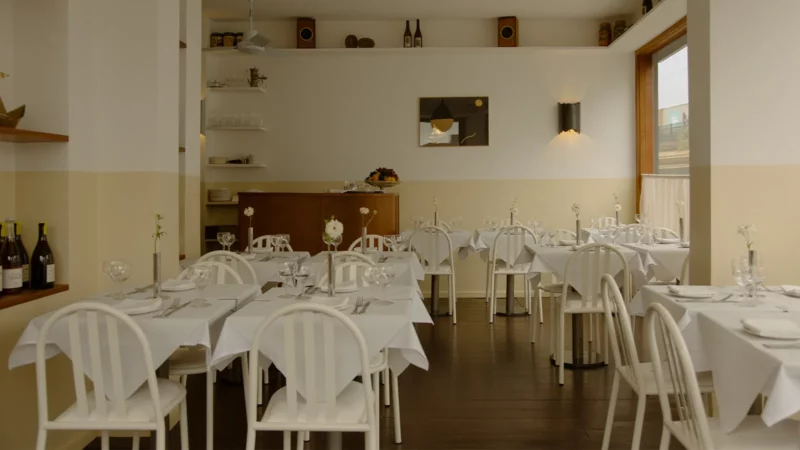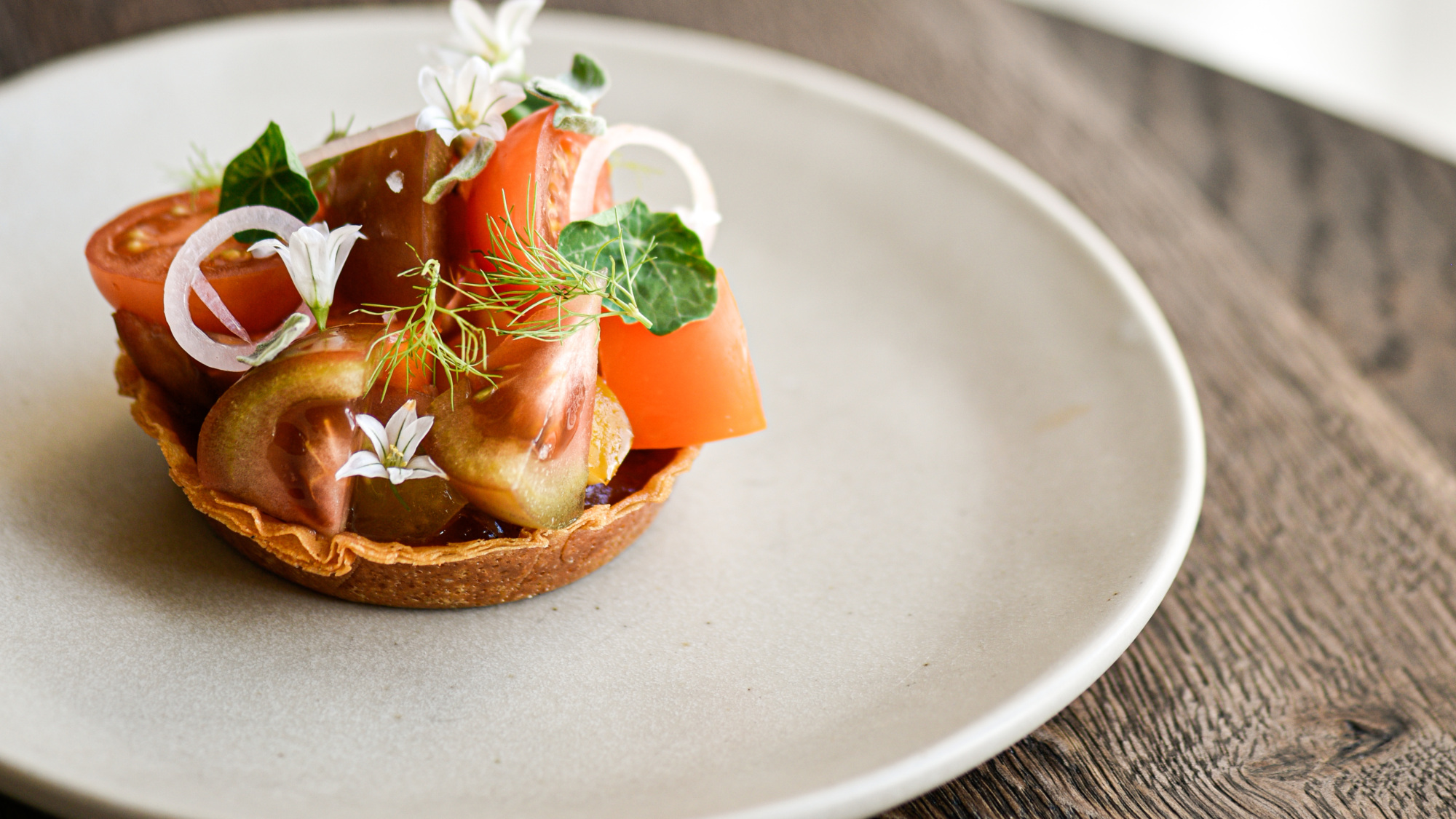
What You Should Know About Maene, One of Spring’s Major New Restaurants
There’s a positive aura around Fashion Street in Spitalfields right now, and it’s not all radiating from the studios at Mission, Europe’s newest, largest yoga space, just opened in a Victorian clothing factory at number seven. There’s also plenty of good energy emanating from the top floor of the building where restaurateur Nick Gilkinson has just opened the doors to Maene, his second restaurant after Townsend at the Whitechapel Gallery, a short walk away down Brick Lane.
While Gilkinson’s not exactly sitting cross-legged in lotus pose – it’s a stressful business launching a restaurant – it’s a marvel that he can relax at all. After launching Townsend in the throes of a global pandemic [see below] he’s learned to be vigilant. Now, he can breathe. The space is just as he and Mission’s founders imagined it, with a café serving the yoga studios on the ground floor, and a light-filled loft restaurant on the top floor that opens out onto a terrace and views – and what views! – over Spitalfields and the City. Leading the kitchen is chef Amber Francis, fresh off Great British Menu, in her highest profile head chef’s role to date.
Here’s what you need to know about one of spring’s major new restaurants.
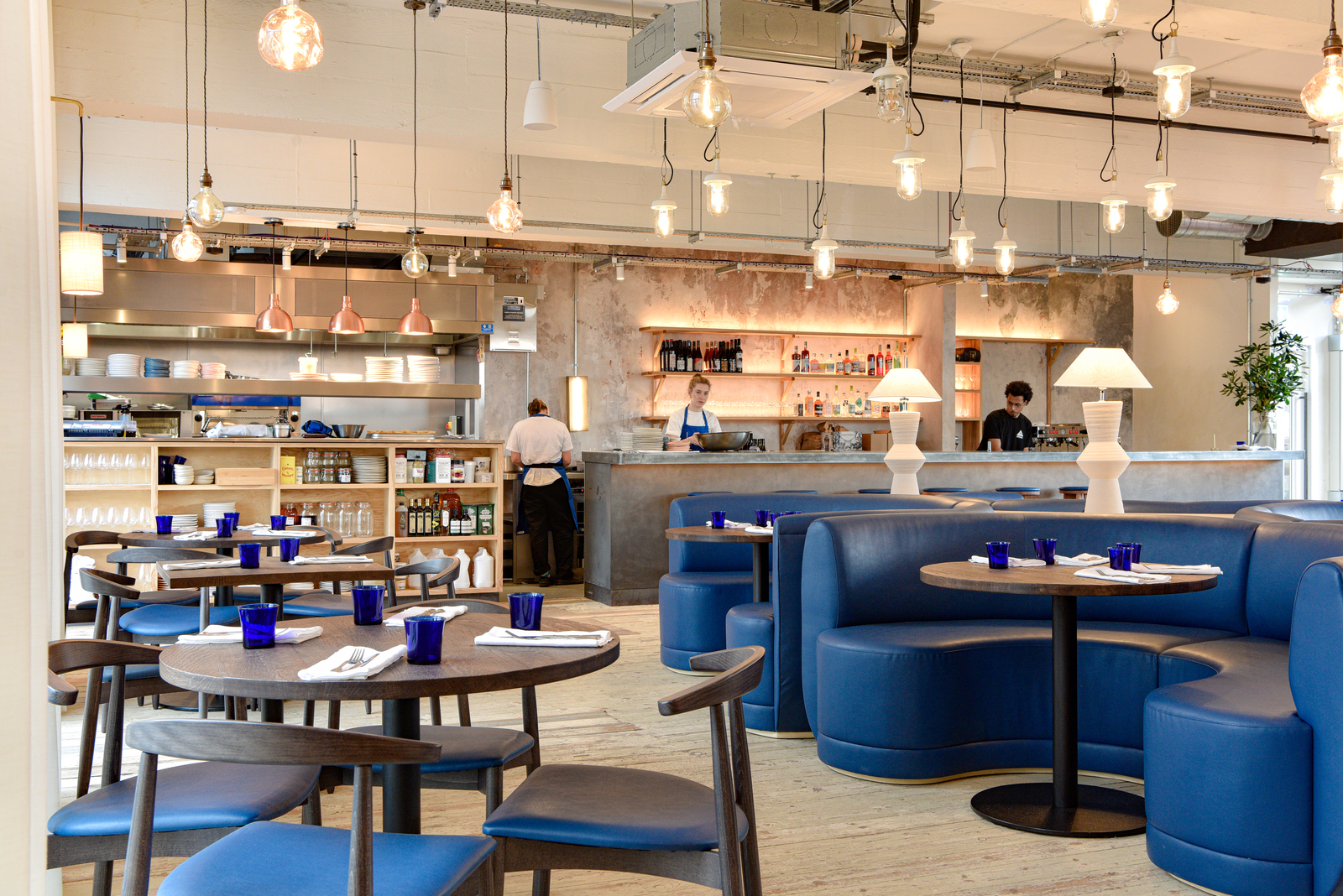
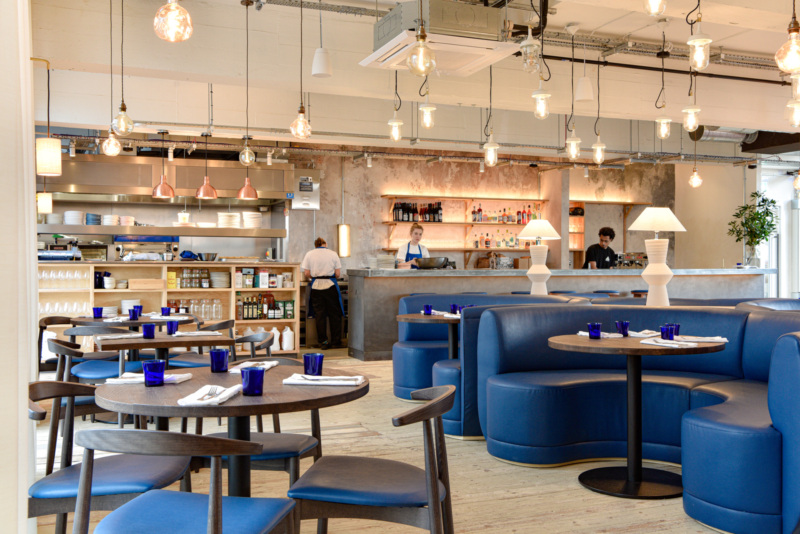
Think of Maene as a country restaurant in the city.
Maene occupies the top floor of a converted Victorian clothing factory on Fashion Street which houses Mission, Europe’s largest yoga space.
The Mission founders reached out to Gilkinson because of the existing connection to the area and his understanding of the dynamic of working within a bigger institution, as Townsend does at the Whitechapel Gallery and the Garden Café, where he worked before, does at the Garden Museum. Gilkinson saw the site, all exposed brickwork and natural daylight, and knew he could do something special there. And as an added bonus, Maene’s staff get discounted classes and use of the changing rooms.
Francis views Maene as a country restaurant in the city. “Though Maene is every much central London which is something I had moved away from with Birch Riding Club, what is really unique with Maene is that we are focusing very intently on building up that relationship with suppliers. I wasn’t prepared to come back into a city restaurant unless there was a real ethos and push to make that part of the decision-making process.”
A taster of the opening menu: Mersea oysters with pickled rhubarb and sorrel; allotment fritto misto with smoked chilli aioli; la Latteria stracciatella, pickled squash and yesterday’s bread; Springfield Farm chicken, rosemary, garlic, burnt lemon, and green goddess sauce. For dessert, pine pannacotta, English apple and wood sorrel, sgroppino pear sorbet, English sparkling wine, and elderflower.
“Nothing too fussy,” says Amber. “Casual dining but just done really cleanly and really well. It’s the kind of food that I hope chefs want to eat.”
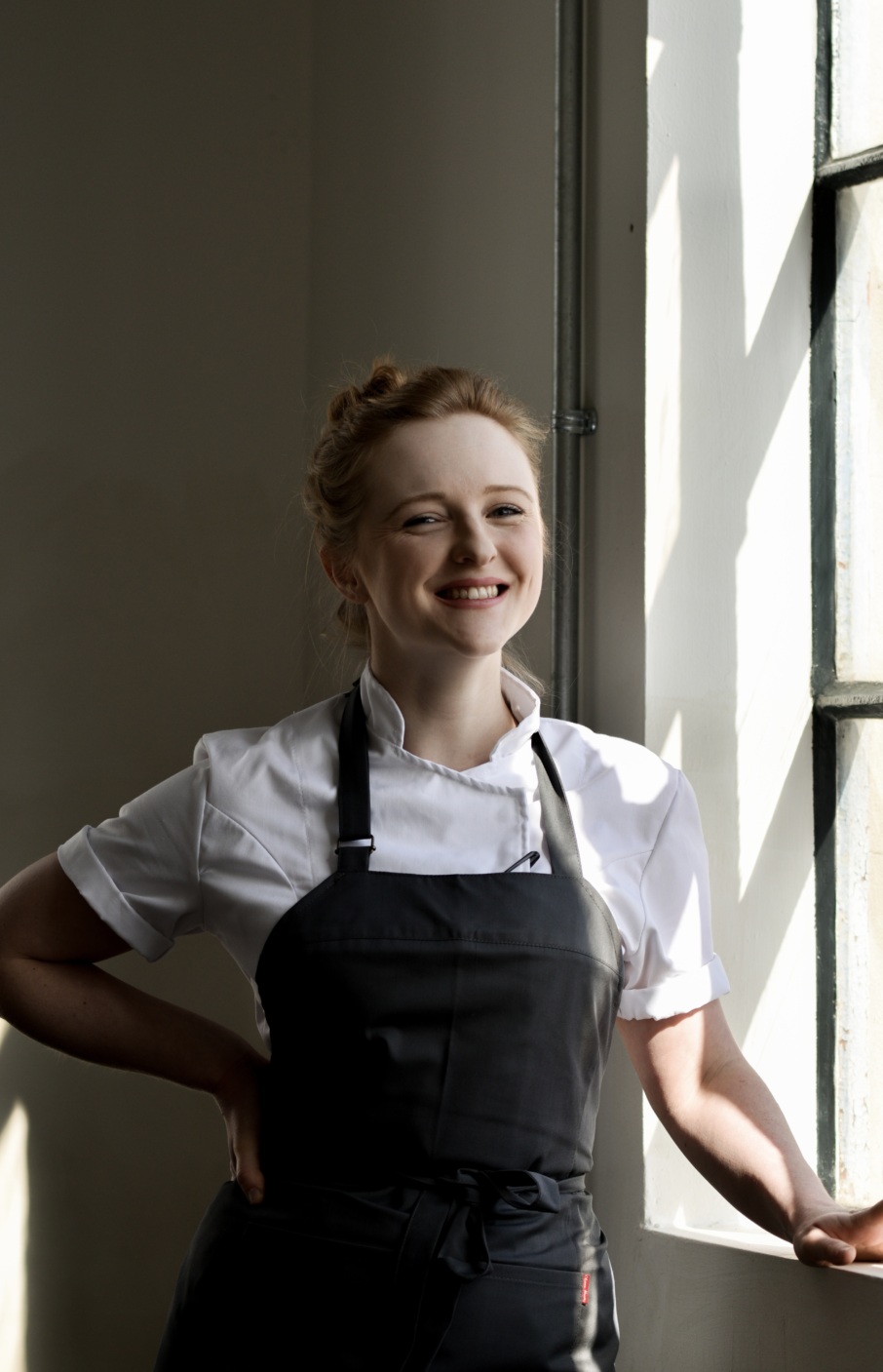
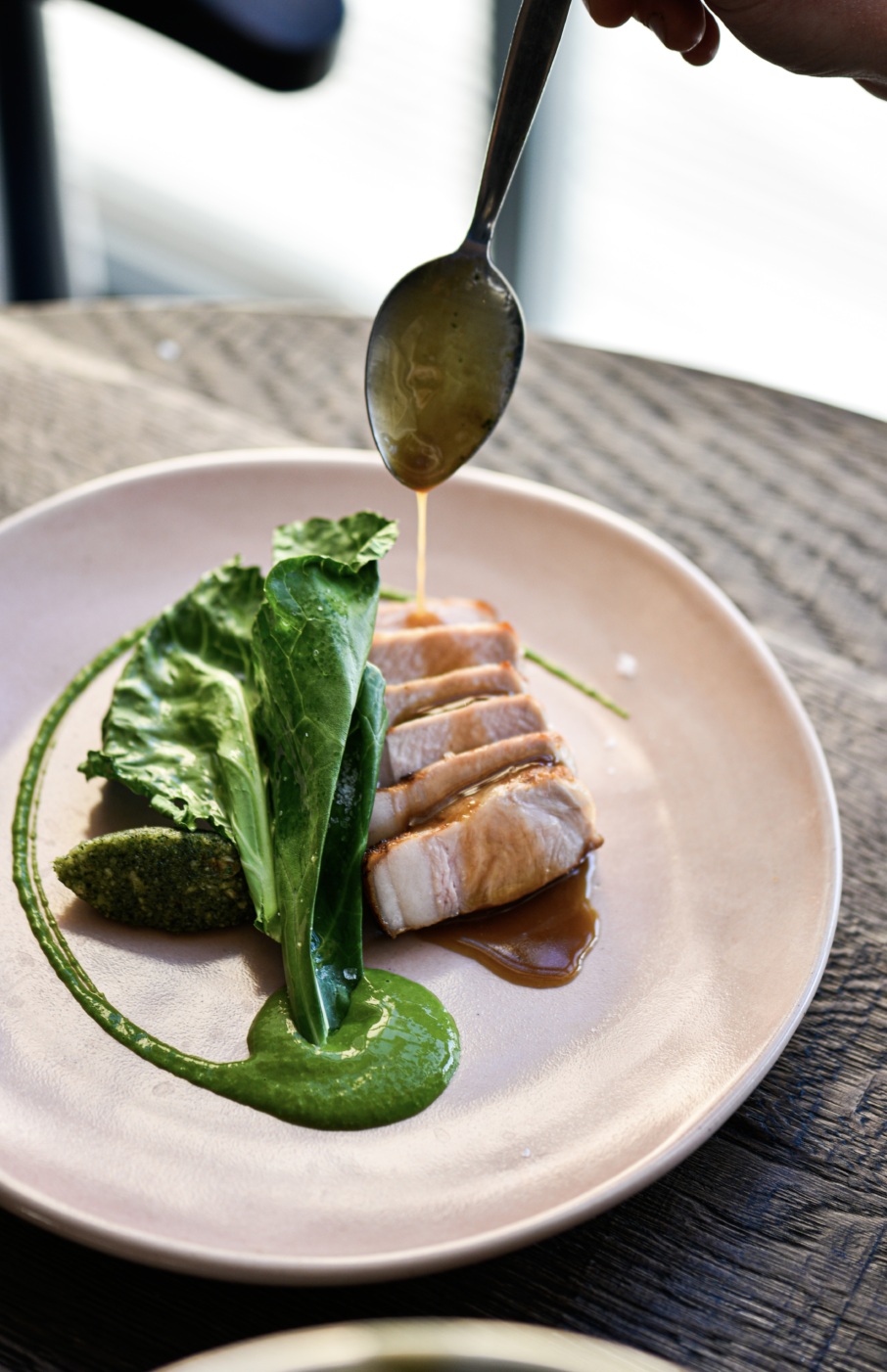
In chef Amber Francis, a star is born.
Maene’s Bristol-born head chef Amber Francis has achieved so much by 27, it makes you want to give up and go back to bed. She was staging at Le Manoir aux Quat’ Saisons and The Hand and Flowers during her school holidays, where she’d do revision on her break. Francis got straight As, but “followed her heart” to go into cooking and landed a place on the Royal Academy of Culinary Arts Specialist Chef Scholarship. “My one act of rebellion in my entire life was the morning I found out I’d got on the Specialist Chef Scholarship I didn’t turn up to my university aptitude test.” She moved to London at 18 and did her three-year apprenticeship at The Ritz.
“I knew that if I wasn’t going to follow an academic course, I wanted to have a quite traditional and recognised training,” she says. “That’s not to say that you cannot learn fantastically well on the job and if I was to do it again now, I maybe wouldn’t have done it but at the point in time, the pressures for young people to follow some kind of recognised qualification pathway after leaving school [were] really intense. I wouldn’t be the chef I am today without the all-encompassing knowledge that I received there.”
After the Ritz, she was off again, this time to San Francisco for stages at two- and three-star heavyweights Benu and The French Laundry. And just when you might think she had it all sussed, she found herself at River Cottage, mucking in to help her friend when a realisation dawned: “I knew how to follow orders very well, I was a very good chef, but I didn’t really know how to cook. I didn’t have much confidence in my own skills so when I wasn’t following a recipe or following orders from a sous chef, I didn’t have the confidence to trust my instinct.”
She learned how at The Dairy (RIP), chef Robin Gill’s non-conformist restaurant in Clapham, where “everyone had a part to play in the process”. “We designed menus together and it was new dishes every single day. It was very fluid and really gave me confidence in my ability.” After a year at Brawn, one of east London’s best loved restaurants, she was back with Robin Gill for her first chef’s job at Zebra Riding Club at Birch in Hertfordshire. Inevitably, Great British Menu’s talent scouts swooped, and she represented the Southwest region this year. She didn’t win. Give her time.
I don’t think we should necessarily look at what other restaurants do, but at what other good companies do. That’s what our benchmark should be, not just what’s the norm in our industry.— Nick Gilkinson
As at Townsend, value is on the menu at Maene.
It takes some culinary and arithmetic gymnastics to offer a £19 lunch and £34 dinner at Townsend but Gilkinson wants Townsend and now Maene to be seen as clear value for money. Maene won’t offer a prix fixe but will offer bang for buck. “I’ve just kind of asked the chef for everything to be under £20,” says Gilkinson.
“The dinner set menu has always been a big part of what we do. Just making sure that the margins work for us and having a kitchen team who are on top of their costings. We are constantly looking at our invoices making sure we’re getting the best prices which is another layer of work and another layer of analysis that needs to be done but I think it’s so important at the minute. We were really nervous about putting on a supplementary course in case people thought we were taking the mickey out of them — but people love it, they add on some oysters, bread and butter…”
“There’s probably some cuts of meat and fish we wouldn’t be able to put on at the minute because we wouldn’t be able to do it for under £25 which is kind of my cap on our main courses. I’d ideally like it to be slightly lower but there’s only so much you can do.”
Purchasing power comes from the growth from one restaurant to two, just five minutes apart. For example, the chefs can get in a whole carcass, and split it across the two kitchens. Whether a third or even fourth could happen, it’s too soon to say. “I’m ambitious but I’ve also seen people try and open too many things too quickly. Everything’s got to be built on firm grounding.”
The terrace at Maene is going to be popping this summer.
The old clothing factory is “beautiful inside and out” sighs Gilkinson, clearly smitten. The open plan interior, designed by Fare Inc (you may have seen their work at Kolamba) features cement, zinc, soft linens, Victorian floorboards, and large steel French doors out to the terrace. The terrace looks out to the Ten Bells pub and Christ Church on one side, the City on the other. “It almost looks like New York loft warehouse, especially with the roof terrace looking out over the city. It gives me slight DUMBO vibes.”
“Annie Harrison [founder of Fare Inc] and I both said it’s such a beautiful building, we didn’t really want to do too much to it.” Seating is in curvy booths, along the bar kitchen counters, and around an 18-seat family table. It’s fully open plan. “No one’s in a basement which can be such a hard thing if you’re working long hours. Having somewhere that’s light and open you see people’s reactions to your food, it’s a massive thing.”
Townsend doesn’t have a bar so the team’s had some fun creating cocktails for Maene. There are eight signature cocktails, all with a non-alcoholic counterpart. This isn’t to please the my-body-is-a-temple types, it’s for the London’s new generation of drinkers who do a day on, a day off or a drink on, a drink off. There’s a private lift to whizz guests up so they can be sipping their sea buckthorn margarita within seconds.
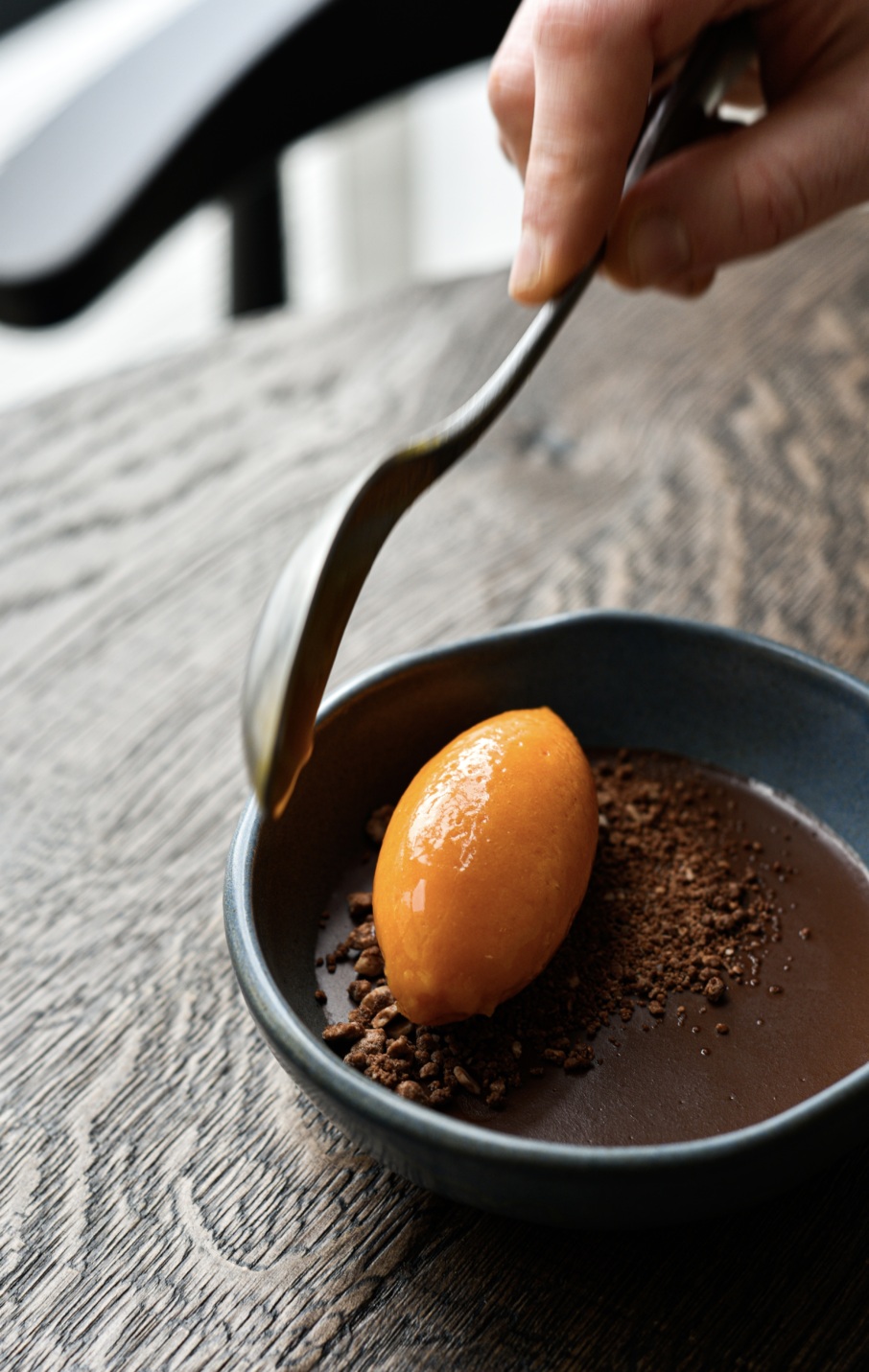

Launching a restaurant during a pandemic is an experience that stays with you.
Townsend, Gilkinson’s first restaurant, emerged into the world, wide-eyed and innocent, in the February of 2020, six weeks before the first national lockdown. It didn’t know a ‘normal’ year until 2022, and didn’t get the early word-of-mouth or press reviews it might have normally received.
Townsend had it tough, and the experience has strengthened Gilkinson’s resolve. “Now with a second site, it’s almost like ‘Right, OK, chances are nothing will go quite as badly as it did with Townsend,” Let’s just put as much as you can into it and give it your all and see if you can make it the best it can be’.”
The early slog with Townsend (now thriving) has only helped Maene. “You learn so much when you open a restaurant. You learn what went well but also what you can do to change. At Maene, we’ve built training and development and that culture in from the beginning. At Townsend, we were starting the process, then it was stop start stop start.”
With Maene, he started with the question: “Who do we want to be as a company? I speak to friends who are not in the industry and look at how their company [operates]. I don’t think we should necessarily look at what other restaurants do, but at what other good companies do. That’s what our benchmark should be, not just what’s the norm in our industry. I think that’s how we attract and retain staff.” The name Maene? It’s an old English world meaning public or universal and translates to ‘a sense of community’.
Hilary Armstrong is a London-based journalist and editor. Follow her on Instagram and Twitter. Follow Resy, too.


